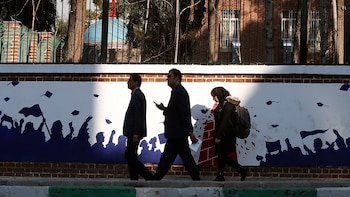
The International Monetary Fund (IMF) reduced its estimate of Mexico's economic growth for 2022 by 0.8 percentage points, from 2.80% to 2%, as presented in its latest report on the World Economic Outlook (WEO).
This cut in Gross Domestic Product (GDP) is due, in part, to the conflict between Russia and Ukraine, which has impacted inflation, as well as to the growth expectations of the United States and China that were likewise lowered.
However, by 2023, Mexico's GDP is expected to grow by 2.5%, or 0.2 points lower than the previously forecast figure, the international organization said.
The report was presented in the framework of the IMF and World Bank Spring Assembly this Tuesday, April 19. For his part, the director of the IMF's Department of Studies, Pierre-Olivier Gourinchas, said that the “economic damage caused by the conflict will contribute to a significant slowdown in world growth in 2022 and fuel inflation.”

Similarly, for the Latin American and Caribbean region, the IMF estimated overall growth of 2.5% for 2022, which represents an improvement of 0.1 percentage points over the forecasts presented in January.
On the other hand, experts from the private sector also reduced their expectations of Mexican GDP growth for this year, from 2.04% forecast in February to 1.76%, according to the monthly survey conducted by the Bank of Mexico in March, which was presented on 1 April.
Meanwhile, by 2023 experts estimate that the Mexican economy will grow 2.08% compared to the 2.13% forecast the previous month. With regard to inflation, it is projected to stand at 5.86% (in February it was 4.78%).
For its part, the Ministry of Finance and Public Credit (SHCP) also lowered its growth expectations for Mexico; however, its forecasts are more “optimistic”, placing the economy at 3.4% for 2022, while for next year an increase of 3.5% is estimated.

In the presentation of the document “General Pre-Criteria for Economic Policy 2022″, the Treasury indicated that among the main challenges for the Mexican economy is the imbalance between supply and demand resulting from the COVID-19 pandemic, which caused shortages of industrial inputs, increased transportation costs and there was a increase in food and commodity prices, mainly energy.
Similarly, BBVA Mexico reduced its growth forecasts for Mexico's GDP on April 7, by adjusting its estimate by 1.2% for this year. Carlos Serrano, chief economist at BBVA, said that this adjustment responds to the conflict between Russia and Ukraine because of its effects on global value chains and its impact on energy prices.
This was the second time that the bank reduced its growth for the Mexican economy during 2022, as last January it adjusted its estimates from 3.2% to 2.2%.
While other Latin American countries have shown greater economic recovery from the first quarter of 202 to the fourth quarter of 2021, with a cumulative increase of more than 7.0%, such as Chile (9.7%), Colombia (9.3%), Peru (9.1%) and Argentina (7.8%), Mexico registered a contraction of -2.4% during the same period.
Finally, it should be noted that Mexico's GDP recorded real annual growth of 4.8% in 2021, compared to -8.2% in 2020.
KEEP READING:
Últimas Noticias
Debanhi Escobar: they secured the motel where she was found lifeless in a cistern
Members of the Specialized Prosecutor's Office in Nuevo León secured the Nueva Castilla Motel as part of the investigations into the case

The oldest person in the world died at the age of 119
Kane Tanaka lived in Japan. She was born six months earlier than George Orwell, the same year that the Wright brothers first flew, and Marie Curie became the first woman to win a Nobel Prize

Macabre find in CDMX: they left a body bagged and tied in a taxi
The body was left in the back seats of the car. It was covered with black bags and tied with industrial tape
The eagles of America will face Manchester City in a duel of legends. Here are the details
The top Mexican football champion will play a match with Pep Guardiola's squad in the Lone Star Cup

Why is it good to bring dogs out to know the world when they are puppies
A so-called protection against the spread of diseases threatens the integral development of dogs




